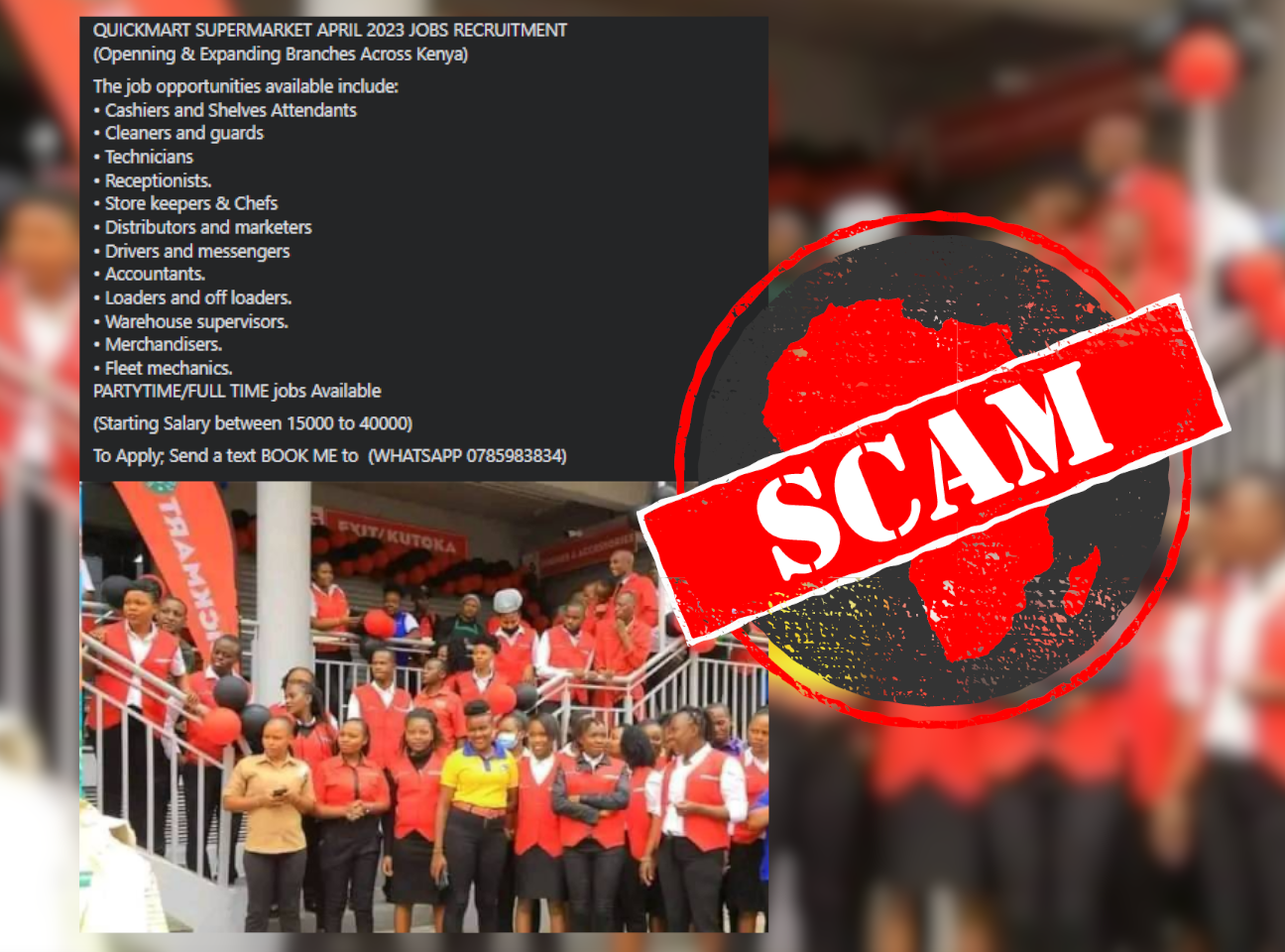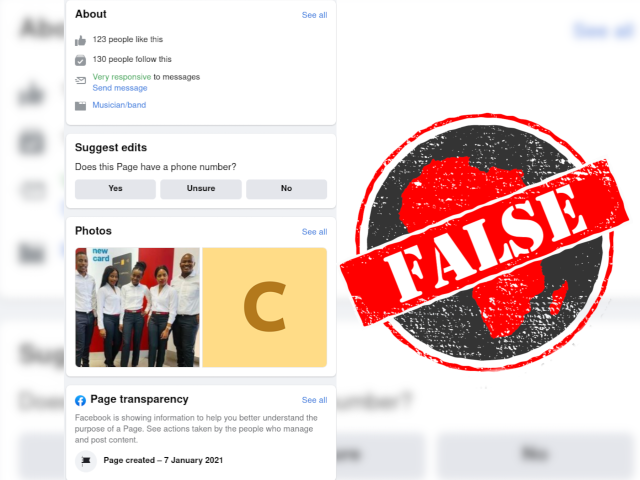IN SHORT: Quickmart employs thousands of people, which is why many Kenyans can believe it is expanding its workforce. Avoid these ads.
An ad posted on Facebook claims that Kenyan supermarket chain Quickmart is recruiting across the country.
Quickmart has 57 stores in 14 counties and employs more than 6,000 people.
The 18 April 2023 ad reads: “QUICKMART SUPERMARKET APRIL 2023 JOBS RECRUITMENT (Openning & Expanding Branches Across Kenya)… (Starting Salary between 15000 to 40000).”
The jobs listed include cashiers, receptionists, stockists, distributors, drivers and accountants.
Interested applicants are asked to send a message to a phone number, starting the message with “BOOK ME”.
The ad also appears here, here, here, here and here.
But is the supermarket chain looking to expand its workforce? We checked.

Fake job advert
There is no mention of any vacancies on Quickmart's website, official Facebook page or Twitter account.
The phone number listed in the ad is also not listed on the retailer’s official website.
We contacted the number on WhatsApp, pretending to be an interested job applicant.
The response we received asked for personal details such as full name, identity number and a photo.
We were also asked to pay a registration fee of KSh350 through a different phone number, and told it belonged to Quickmart's recruitment supervisor.
This is a clear indication that the job ad is a scam.
On 13 April 2023, Quickmart used its official verified Facebook account to warn the public not to engage with scammers.
Quickmart listed their official phone numbers and wrote: “Your security is our top concern! Avoid scammers and only use our official numbers and social media pages @quickmartkenya (Facebook, Instagram & Twitter) for any questions or concerns.”
For more tips on how to stay safe on social media, see Africa Check’s guide to Facebook scams and how to spot them.
Republish our content for free
For publishers: what to do if your post is rated false
A fact-checker has rated your Facebook or Instagram post as “false”, “altered”, “partly false” or “missing context”. This could have serious consequences. What do you do?
Click on our guide for the steps you should follow.
Publishers guideAfrica Check teams up with Facebook
Africa Check is a partner in Meta's third-party fact-checking programme to help stop the spread of false information on social media.
The content we rate as “false” will be downgraded on Facebook and Instagram. This means fewer people will see it.
You can also help identify false information on Facebook. This guide explains how.



Add new comment